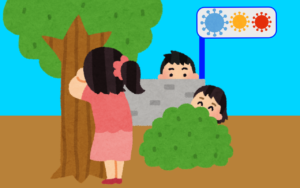
Asahi Breweries announced on February 15 that it will close its Kanagawa (Minami-Ashigara City) and Shikoku (Saijo City, Ehime Prefecture) breweries next year in 2023.
The Kanagawa Plant, which began operations in 2002 after closing the Tokyo Plant (Omori, Ota-ku, Tokyo), was short-lived, lasting only 21 years.
Asahi Beer's Hakata factory, which celebrated its 100th anniversary last year, will also cease operations at the end of 2025 and move to a new Kyushu factory (location to be determined).
My grandfather worked at the Hakata factory for many years, and my mother worked there as a clerk when she was young, so I am familiar with the Asahi Beer Hakata factory.
During the Pacific War, the city of Hakata was burned to the ground in air raids, but the Hakata factory was not bombed.
Although it is not known if this is true or not, it is said that the chimneys of the beer factory have a special shape and can be seen clearly from the sky. My mother once told me that the U.S. military, already thinking that Japan was about to lose the war, did not bomb the city so that beer could be consumed immediately after the occupation.
The Hakata Plant is scheduled to be reborn as a new plant, but the Kanagawa and Shikoku plants will be closed completely.
Behind the closure is the decline in beer consumption.
Beer consumption in 2020 is down about 28% from 2016, five years earlier.
While consumption of spirits (such as vodka and gin), fruit wine, and liqueurs (including third beers) is increasing, consumption of beer, happoshu, and sake is decreasing.
The decline in sake is nothing new, but there are several reasons for the decline in beer and happoshu.
One is that the Corona disaster forced restaurants to close and restricted drinking even after the ban was lifted. This has had a tremendous impact because the first drink at a restaurant was "beer for now.
The second is that young people are becoming less interested in beer. Even at drinking parties over the past few years, many young people have ordered chu-hi and sour drinks instead of beer and sake. Beer was seen here and there only as a toast.
The third is taxes: the consumption tax, introduced in 1989, was 3 percent, but has since been increased to 5 percent in 1997, 8 percent in 2014, and 10 percent in 2019.
The liquor tax on beer used to be 77 yen for a 350-milliliter can; although the tax was lowered to 70 yen in 2020, the consumption tax was also raised, so in real terms the tax has only dropped by about 3 yen.
The tax on chuhai and sours is 28 yen, 42 yen less than beer, making beer relatively expensive.
With the average salary of Japanese people declining, beer has become an alcoholic beverage that is not readily available. Therefore, it is very inexpensive to buy local beer in Thailand and the Philippines for less than 100 Japanese yen, which is great for beer lovers.
The liquor tax is scheduled to be revised next year in 2023, reducing the tax from 70 yen to 63.35 yen, and then to 54.25 yen in 2026. However, the price of beer is not likely to go down easily, not only because of the situation in Ukraine, but also because raw materials are likely to rise.
Meanwhile, other liquor taxes will be raised, so the future does not look bright for drinkers anyway.
But it's all a matter of quitting drinking…









